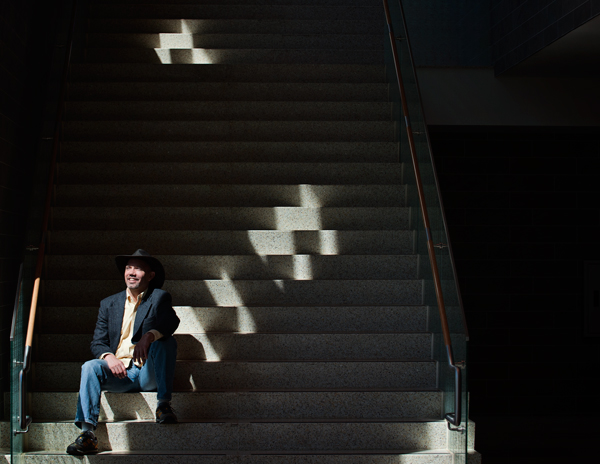How the startup community is growing in Kalamazoo
Finding a place to talk tech startups has gotten a whole lot easier in Southwest Michigan. Who is behind this change and where is it going?
From events once or twice a year, the community now features regular monthly get-togethers and one veteran of startup communities in Boulder, Colo. and Austin, Texas, says Kalamazoo has many of the same attributes that allowed those communities to flourish.
“The Startup Community has grown immensely in the last year,” says Ryan Goins, one of those leading the growth as an organizer of three local Startup Weekends and Startup Zoo, an every other week opportunity for tech entrepreneurs to meet with one another on Wednesday nights.
Over the past two years Startup Zoo has hosted most, if not all of internet technology startup related events. That was intended to “plant seeds within the community,” Goins says, “to discover where there was interest, and encourage entrepreneurs to get involved.
“However this year nearly all the events happening have been organized independently of us, which is fantastic. I think that’s a clear sign the community is reaching a new stage of growth and it has validated the idea that there is a need for a startup community in Kalamazoo.”
Take, for example, the past few weeks. The community participated in the National Day of Civic Hacking, making Kalamazoo’s event one of 100 across the country to use technology and entrepreneurial thinking to tackle some of the nation’s most pressing social challenges.
KzooHack took place Saturday June 1 at Maestro and ran through Sunday night at 7 p.m. when judges selected the best hack in a number of categories, including best mobile app and best project benefiting Kalamazoo. See the projects they created here.
A number of groups now meet on a regular basis. PitchZoo is an opportunity for startup founders to hone their pitches, and the iOS developer’s meetup known as CocoaHeads has been organized by developers at Maestro. The group devoted to discussion of Apple Computer’s Cocoa Framework gives members a chance to present projects and offer tutorials on various programming topics.
Earlier this year there was the first of what organizers expect to be an annual event pitch competition organized at Western Michigan University. And in April Daniel Proczko organized a screening of the Startup Kids documentary as one way of inspiring local tech entrepreneurs.
That these seeds of a tech startup community are taking root has a lot to do with being planted in the right environment.
John Mueller, Assistant Professor of Management at Western Michigan University, with a doctorate in entrepreneurship, and the organizer of the recent pitch event says Kalamazoo has the pillars needed to support a tech startup community of its own.
Mueller, a Texas native, saw the changes in Austin as he grew up in the area. He also spent nine years in Boulder and was involved in the tech startup community there. His experience further includes starting and running several businesses in the software industry over a 10 year period. He’s also been a business executive and done software programming and testing.
What are some of the things Kalamazoo has going for it as Mueller sees it?
Tolerance is one. The creative class needed to drive a startup culture, as identified by Richard Florida, flourishes when it finds tolerance, technology and talent, Mueller says. One way Mueller describes tolerance is a community that is a place where a person can “be gay and not be worried about it.” It’s also a community” that’s able to balance the power of conservatives and liberals.”
Louisville Mayor Greg Fischer has pushed innovation in that city with his understanding that compassion is part of tolerance and something the community must strive for. Fisher also understands the need for collaboration, Mueller says.
The motto “Keep Austin Weird” is well known. But some argue that any community that wants to promote innovation should embrace weirdness. That can mean no requirement to look, dress or act a certain way.
Besides tolerance, what else does Kalamazoo offer?
Mueller points out that Boulder, Austin, and Louisville all have strong universities. Programs to create commercial products from research conducted in universities are important as MIT is to Boston and Stanford is to Silicon Valley. So Kalamazoo’s universities and colleges acting as feeders to the startup community can be integral to the entrepreneurial environment.
A community like Kalamazoo that has fostered the growth of large corporate entities such as Stryker and Upjohn (now Pfizer) has experience in promoting innovation, which also is critical to the startup ecosystem.
Fun and food are also parts of the picture. With plenty of spots to eat good food, places where people can listen to music, a vibrant local food scene and a burgeoning craft beer scene are key. “People want to live in a cool place,” Mueller says.
Because computer tech companies can locate anywhere, Kalamazoo’s low cost of living is another advantage, as is its location between Detroit and Chicago.
To bring it all together into a community that supports its tech entrepreneurs will take financial resources through the development of relationship with investors. It also will take a commitment to stick with the community over years. Brad Feld, author of “Startup Communities” describes Boulder’s as still relatively young, though it has been going for 40 years.
Kathy Jennings is the managing editor of Second Wave Media. She is a freelance writer and editor.
Photos by Erik Holladay.


















